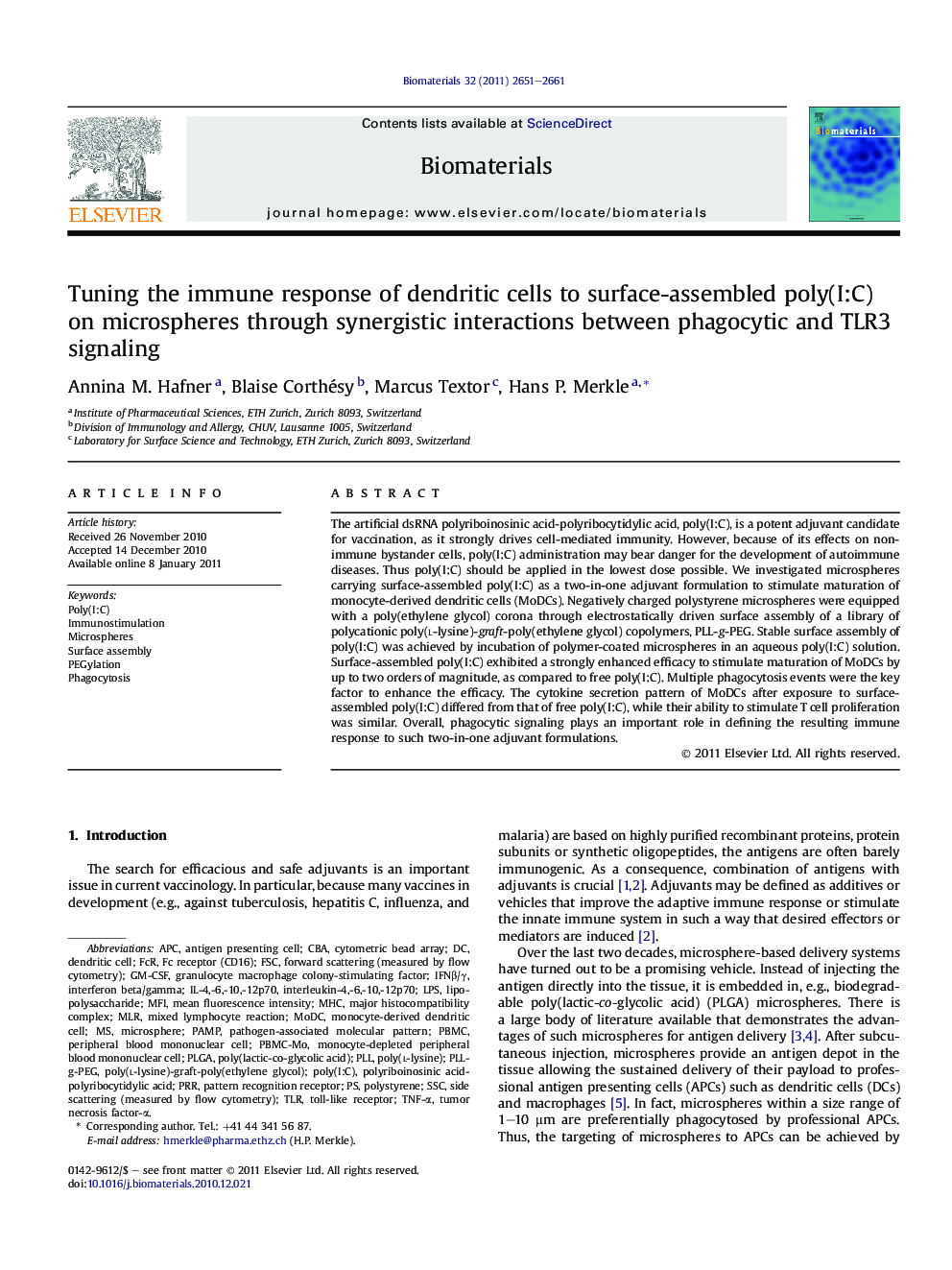| Article ID | Journal | Published Year | Pages | File Type |
|---|---|---|---|---|
| 8111 | Biomaterials | 2011 | 11 Pages |
The artificial dsRNA polyriboinosinic acid-polyribocytidylic acid, poly(I:C), is a potent adjuvant candidate for vaccination, as it strongly drives cell-mediated immunity. However, because of its effects on non-immune bystander cells, poly(I:C) administration may bear danger for the development of autoimmune diseases. Thus poly(I:C) should be applied in the lowest dose possible. We investigated microspheres carrying surface-assembled poly(I:C) as a two-in-one adjuvant formulation to stimulate maturation of monocyte-derived dendritic cells (MoDCs). Negatively charged polystyrene microspheres were equipped with a poly(ethylene glycol) corona through electrostatically driven surface assembly of a library of polycationic poly(l-lysine)-graft-poly(ethylene glycol) copolymers, PLL-g-PEG. Stable surface assembly of poly(I:C) was achieved by incubation of polymer-coated microspheres in an aqueous poly(I:C) solution. Surface-assembled poly(I:C) exhibited a strongly enhanced efficacy to stimulate maturation of MoDCs by up to two orders of magnitude, as compared to free poly(I:C). Multiple phagocytosis events were the key factor to enhance the efficacy. The cytokine secretion pattern of MoDCs after exposure to surface-assembled poly(I:C) differed from that of free poly(I:C), while their ability to stimulate T cell proliferation was similar. Overall, phagocytic signaling plays an important role in defining the resulting immune response to such two-in-one adjuvant formulations.
